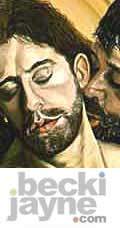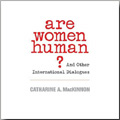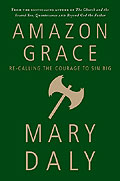 I remember vividly how conservative attack mutts hounded Clinton during his presidency. They snarled and bared their teeth over Whitewater, Travelgate, "wag the dog," Jones v. Clinton and Monica Lewinsky. When George W. Bush swept into office, most of media transformed into toothless lapdogs, a shift I witnessed from inside a news organization. So when Clinton called yesterday's Chris Wallace interview a "conservative hit job," I cheered Bill's impassioned counterattack and his righteous takedown of unfair and imbalanced right-wing propaganda. 'Twas beautiful, inspiring, and long overdue.
I remember vividly how conservative attack mutts hounded Clinton during his presidency. They snarled and bared their teeth over Whitewater, Travelgate, "wag the dog," Jones v. Clinton and Monica Lewinsky. When George W. Bush swept into office, most of media transformed into toothless lapdogs, a shift I witnessed from inside a news organization. So when Clinton called yesterday's Chris Wallace interview a "conservative hit job," I cheered Bill's impassioned counterattack and his righteous takedown of unfair and imbalanced right-wing propaganda. 'Twas beautiful, inspiring, and long overdue.
What's extremely odoriferous since 9/11 have been conservative attempts to blame Clinton for not having done enough to get Bin Laden. Yet during his presidential term when he ordered counterterrorism efforts, the attack mutts barked, "Wag the dog!" The BBCNews described 1998 as the year of Bill and Monica, the same year Clinton ordered military strikes against terrorist targets in Sudan and Afghanistan. As the BBCNews reported:
Reaction in the US itself was split between politicians backing the president and those suggesting that the timing might have been related to Mr Clinton's continuing problems in the Monica Lewinsky affair.The Brits were polite. Right-wing extremist Mona Charen, not so much. In 1999, Charen recalled the 1998 bombing of Khartoum, Sudan:
But the fact remains that Bill Clinton seems to have launched an unprovoked attack against a country with which we are at peace merely to distract attention from his legal and political embarrassments at home. As Christopher Hitchens put it in "No One Left to Lie to," his acidic summation of the Clinton presidency: "Why not give (Sudan) a warning or notice of, say, one day to open the plant to inspection? A factory making deadly gas cannot be folded like a tent and stealthily moved away."....This president is a disgrace of monumental proportions. Who but he could get the United States into a posture of less probity than Sudan?Ha! Had it been President Bush who had ordered military strikes on Sudan, wanna bet Mona would have criticized George to perhaps "distract attention" from his low approval ratings? Not on your life. Now read the condemnation of Clinton by Hitchens, Sept. 23, 1998, on the Sudanese bombing:
Clinton needed to look "presidential" for a day. He may even have needed a vacation from his family vacation. In any event, he acted with caprice and brutality and with a complete disregard for international law, and perhaps counted on the indifference of the press and public to a negligible society like that of Sudan, and killed wogs to save his own lousy Hyde...The "Hyde" reference is to Republican congressman, Henry Hyde, who lead the Clinton impeachment in the House. Funny how conservatives do not describe Bush as acting with "caprice and brutality" for invading Iraq and slaughtering tens of thousands of civilians.
Now fast forward to a more recent bit of nasty over Clinton and Bin Laden. Right-wing Captain's Quarters, Aug. 16, 2005:
Would this be the same Bill Clinton who sobbed to New York Magazine this week that he wished that the FBI could have told him for sure that Osama bin Laden and al-Qaeda attacked the USS Cole in 2000? Well, the State Department certainly told him that Osama likely masterminded Khobar Towers, and told him to stop bin Laden from digging into some of the most difficult terrain in which to get him later. Let's also not forget that the FBI told him that bin Laden backed the dual bombings of our African embassies in 1998. What stopped him from going after bin Laden then, except by shooting a few missiles at a training camp?See, there's that disinformation and derogative attitude that Clinton referred to in his Faux News interview. Fact is, the FBI didn't confirm who was behind the USS Cole attack until 2001 when Bush was Commander-in-Chief. What did Bush do? Nothing until 9/11. CQ must have sourced its post from Faux News, which concluded its report with flecks of wingnut spittle:
"[Administration officials] were very well aware of bin Laden and they were also well aware that Al Qaeda may use commercial airliners as weapons," in the late 1990s, said Patterson, the author of "Dereliction of Duty." But "it was always treated as a law enforcement issue," he added.
"I think President Clinton really failed to grasp the threat ...President Clinton met with Monica Lewinksy many more times than with his FBI or CIA director."Adding negative wingnuttia that's completely un-factchecked is typical conservatard propaganda. One thing certain: if awareness that AQ planned to use airliners as "weapons" existed in the 1990s, then Bush, if he were a top-notch national security president, would have known it too. What's his excuse? The Aug. 6, 2001, PDB, Bin Laden Determined to Strike in U.S., definitely informed Bush of "preparations for hijackings or other types of attacks." What did incurious George do to defend America? He told the "unnamed CIA briefer who flew to Bush's Texas ranch... All right. You've covered your ass, now," and resumed his vacation in Crawford. Amazingly, attack mutts hardly whimpered over this disastrous national security lapse.
As for the 9/11 Commission report excluding the State Dept. information, what nefarious Clinton conspiracy coerced the bipartisan commission to taint its findings? Perhaps the situation was a bit more complicated than the simple-minded and illiterate can fathom. The State Department memo (PDF) dated July 18, 1996, clearly states:
Bin Laden and his associates -- particularly Saudi Sunni "mujahidin" -- remain suspects in both the November 1995 OPM/SANG bombing and the Khobar Towers attack. We cannot confirm his involvement in either bombing.Michael Scheuer who headed the CIA's Bin Laden unit shed light on the memo and the agency's response in the NYTimes, Aug. 17, 2005:
"The analytical side of the State Department had it exactly right - that's genius analysis," he said in an interview when told of the declassified documents. But Mr. Scheuer, who wrote a book in 2004 titled "Imperial Hubris," under the pseudonym "Anonymous," that was highly critical of American counterterrorism strategies, said many officials in the C.I.A.'s operational side thought they would have a better chance to kill Mr. bin Laden in Afghanistan than they did in Sudan because the Sudan government protected him.Had this scenario happened during Bush's first term, the Republican noise machine would have spun it as a CIA failure (we heard that one on missing WMDs in Iraq), not a failure of President Bush. Tenet would have shouldered the blame, Bush would have given him a medal, and the media would have moved on to shark attacks and missing white women stories. See the anti-Clinton media bias? I certainly have. So have others:
When questioned on the timing of a possible Iraqi invasion a year after 9/11 and before the November midterm elections, a Bush spokesman took the opportunity to once again slander our former president: "It's a sad day when President Bush is held to a standard of irresponsibility that Bill Clinton set," suggesting that Clinton used air strikes in Sudan to distract the country from his Monica Lewinsky ordeal in 1998. "Just because Clinton did it doesn't mean Bush would." (The Weekly Standard, 12 Aug 2002)
Whoa, hold on there! President Clinton's missile strikes in August of 1998 didn't just attack a factory making poison VX gas in the Sudan, it also, as the spokesman neglected to point out, destroyed training camps in Afghanistan used by Bin Laden... THE Bin Laden, public enemy number one, the man that Bush wanted "Dead or Alive" etc. etc.
As for Clinton's timing, the strikes occurred within two weeks of the Al Qaeda bombings of American embassies in Kenya and Tanzania.
That however didn't stop Republican Rep. Dan Coats from opining that "there's a cloud of doubt [about the timing]" and Sen. Arlen Specter that "there is an obvious issue [as to] the diversionary motive involved . . . [he is doing] something presidential to try to focus attention away from his own personal problems."
Nor did right wing blow-hards like Rush Limbaugh, Joseph Farha, or George F. Will keep their aspersions to themselves. Will wrote in the September 4, 1998 Newsweek, "now that [Clinton] is desperate to change the subject from the consequences of his glandular life, he admonishes the nation that it is time to turn to serious things... Clinton deserved public skepticism about his motives in ordering attacks against terrorist targets in Sudan and Afghanistan."
In these accusations, the right wing was joined by the terror-supporting President of the Sudan Omar Hassan al Bashir, who said the U.S. attack was designed to overshadow the Monica Lewinsky scandal. (Newsweek, 31 Aug. 98)
While any reasonable American would now recognize the prescient wisdom in taking the fight to Bin Laden three years before his successful attack left 3,000 dead at the World Trade Center last September, the Bush White House can only heap scorn and derision on the former president over that huge national distraction of an illicit affair, an affair that the right-wing exposed and exploited (using your tax dollars) all the way to impeachment hearings.
One can only wonder how much progress could have been made against the real threats to our country if Clinton had been supported instead of hounded and hobbled by political hate-mongers bent on his destruction.
At any rate, since Republicans impugned Mr. Clinton's "timing" of the missile strikes, they certainly can't complain now when the rest of us question Mr. Bush's motives for picking a fight with Iraq in the middle of a corporate crime-wave and double-dip recession.Now back to Aug. 21, 1998, NYTimes, U.S. Cruise Missiles Strike Sudan and Afghan Targets Tied to Terrorist Network:
But while the Republican leadership rallied to support the raids, some members of Congress reacted suspiciously, noting that the action followed by three days Clinton's acknowledgment to the public and a grand jury of his relationship with former intern Monica Lewinsky....
... House Speaker Newt Gingrich expressed firm support, and Senate Majority Leader Trent Lott, said, "Our response appears to be appropriate and just."
Others were more critical. Accusing Clinton of "lies and deceit and manipulations and deceptions," Sen. Dan Coats, R-Ind., said the president's record "raises into doubt everything he does and everything he says, and maybe even everything he doesn't do and doesn't say."I could go on with numerous examples for what could be a book for the more ambitiously inclined, but to touch on many of the conservative smears repeated against Clinton, Andrew Sullivan served up an intellectually-dishonest piece of tripe in 2002, While Clinton Diddled. Nice title, yes? A funny thing happened to Andrew on the way to skewering Clinton. Author of Big Lies and Salon.com columnist, Joe Conason, a truly competent political mind who can grasp the difference between fact and fiction, took Sully and his fellow Clinton-haters to the woodshed:
When terrorists first tried to take down the World Trade Center with a truck bomb in February 1993, there was no organized outcry of recrimination against George Herbert Walker Bush, who had left the Oval Office a scant six weeks earlier. Nobody sought political advantage by blaming Bush for the intelligence failures that had allowed the terrorist perpetrators to conspire undetected for more than three years.
And no liberal commentator attempted to pronounce that former president guilty of "criminal negligence" [as Sullivan did of Clinton] based on the sort of fabrications and falsehoods deployed since Sept. 11, here and elsewhere, against Bill Clinton. Yet recently, opportunistic critics have mounted a false indictment of Clinton, attempted to erase his administration's extensive record of action against terrorism and smeared him by suggesting he should have prevented the tragedy of Sept. 11.
To expect fairness and forbearance from these critics would be foolish at this late date. For them, indicting Clinton remains the most compelling obsession of all....
...as Andrew Sullivan's readers can attest. Nearly every day he eagerly promotes the slurring and sliming of Clinton, shooting first and checking later. Sullivan's Salon essay ("While Clinton Diddled") arraigning Clinton, in which he pugnaciously introduces himself as presenting "the facts" and challenges the rest of us to "deal with them," continues this sorry pattern. He distorts and misuses the few facts he selects for his polemic. He presumes that his readers are too ignorant and lazy to check for themselves.
Sullivan's favorite method is to attach his wacky accusations to reporting and quotes from reputable sources, appropriating their authority for his false interpretations. Supposedly citing the New York Times and the Washington Post, Sullivan asserts that Clinton "got his warning about Islamist terrorism very early on" in the first World Trade Center bombing, because "the investigation found links to Osama bin Laden." He adds that "the State Department confirmed" bin Laden's complicity in the killing of American soldiers in Somalia.
Sullivan thereby implies that Clinton should have acted against bin Laden immediately, when in fact nobody knew about the Saudi millionaire's alleged involvement with the WTC bombing or the Mogadishu murders until at least three years later. In 1993, U.S. authorities were scarcely aware of bin Laden's existence, and al-Qaida had not yet been formed. Conservative journalists, such as the New Republic's Fred Barnes, were then suggesting that the likeliest perpetrator of the World Trade Center bombing was Iran. Even now, hard evidence linking bin Laden to those earlier events remains scarce.
Perhaps the most sensational charge against Clinton to emerge in the months since Sept. 11 is the dubious claim that he somehow let an offer from Sudan to turn over bin Laden slip through his fingers. Sullivan blatantly misrepresents a definitive article that appeared in the Washington Post on Oct. 3, 2001, on this topic. "The Sudanese government offered to hand over bin Laden to the United States," Sullivan writes. "Astonishingly, the Clinton administration turned the offer down." But that phony accusation is exploded by the very first sentence of the Post article, which says only that Sudan offered to "arrest Osama bin Laden and place him in Saudi custody."
Specifically, the Post reported that during secret negotiations in 1996 between American officials and Sudan defense minister Elfatih Erwa, "The [Khartoum] government was prepared to place [bin Laden] in custody and hand him over, though to whom was ambiguous. In one formulation, Erwa said Sudan would consider any legitimate proffer of criminal charges against the accused terrorist. Saudi Arabia, he said, was the most logical destination." The Post then detailed efforts by the White House and the State Department to induce the Saudis to accept custody of bin Laden, which the authorities in Riyadh adamantly refused.
Nowhere does the Post's carefully worded story state that Sudan agreed to "hand bin Laden over to the United States" -- because that never happened, except perhaps in Sullivan's imagination.
Still referring to the same Post article, Sullivan complains that the Clinton administration "didn't even use the negotiations with the Sudanese to disable bin Laden's financial assets in the Sudan." But as the Post reported, the U.S. ambassador to Sudan pointedly inquired whether those assets would remain under bin Laden's control after his expulsion. He got no reply from Sudan's foreign minister, and within a few days after his query, the Saudi terror chief departed for Afghanistan.
The Sudanese have always had their own agenda, by the way, which Sullivan doesn't think worth mentioning. They promised to cooperate against terrorism only if the United States ended economic sanctions imposed to punish their genocidal campaign of murder and enslavement against black Christians.
"There were meetings between U.S. and Sudanese officials, including in New York, involving senior counter-terrorism officials, where [Sudanese envoys] would hint that they had great stuff if we lifted sanctions," says a former NSC official with direct knowledge of those events. Other former administration officials have publicly confirmed this account. (And imagine the howling protest from pundits like Sullivan if the Clinton White House had suddenly turned "soft" on Sudan.) But neither the FBI nor the CIA believed that Khartoum was providing anything valuable on bin Laden or al-Qaida.
Sullivan refers to other alleged foreign "offers" to arrest or track bin Laden, but there appears to be little substance to those stories beyond mere speculation. As if he knows what he's talking about, he complains that "it is astonishing that more effort wasn't made to clinch the deals." But of course he knows nothing more than what he read in the London Sunday Times's murky account. What's truly astonishing is that he plays the useful idiot in a Sudanese disinformation gambit, with which Khartoum hopes to win friends in the Bush White House.
While Clinton never got bin Laden, Sullivan cannot honestly fault him for lack of zeal. In 1998, he authorized an intensive, ongoing campaign to destroy al-Qaida and seize or assassinate bin Laden by signing a secret National Security Decision Directive to that effect.
Several attempts were made on bin Laden's life, aside from the famous cruise missile launches that summer, which Sullivan and other Republicans reflexively denounced as an attempt to deflect attention from the Lewinsky scandal.Yup, Sullivan and his comrades in the con-apparatchiki smeared Clinton for wagging the dog. However...
(It never seems to occur to them that they are smearing not only Clinton, but also ranking intelligence and military officers, such as Gen. Anthony Zinni, [later] President Bush's Mideast envoy, who encouraged the president to take that shot in the dark.)
In 1999, the CIA organized a Pakistani commando unit to enter Afghanistan on a mission to capture or kill bin Laden. That operation was aborted when Gen. Pervez Musharraf seized the Pakistani government from Nawaz Sharif, the more cooperative civilian prime minister. A year later, the Saudi terrorist leader was reportedly almost killed in a rocket-grenade attack on his convoy; the missiles hit the wrong truck.
Simultaneously, the White House tried to persuade or coerce the Taliban regime into expelling bin Laden from their country. Clinton signed an executive order freezing $254 million in Taliban assets in the United States, while the State Department kept the Taliban internationally isolated. But as we have learned since last September, there was nothing the United States could have done, short of full-scale military action, to separate al-Qaida from the Taliban. And there was no guarantee that such action would lead to the apprehension of bin Laden, as we have also discovered lately.
Sullivan charges that "Clinton did little that was effective" and "simply refused to do anything serious about the threat." But his bogus "chronology" ignores nearly everything that the Clinton administration did or tried to do.
Following the 1993 attack on the World Trade Center, the new president sent stringent anti-terrorism legislation to Congress as part of his first crime bill, including new deportation powers and a federal death penalty for terrorists. The passage of portions of that legislation many months later was the last time he would enjoy real cooperation against terrorism from congressional conservatives. When he sought to expand those protections in 1995 after the bombing of the federal building in Oklahoma City, he was frustrated by a coalition of civil libertarians and anti-government conservatives, who argued that his "overreaction" posed a threat to constitutional rights.
No anti-terrorism legislation reached Clinton's desk until more than a year later. Thanks to an increasingly obstreperous Republican majority on both sides of the Capitol, law enforcement officials were denied new authority for roving wiretaps and new powers to monitor money laundering that Clinton had requested. All that would have to wait until after Sept. 11.
Back then, Sullivan was among those who accused Clinton of having "shredded civil liberties in the war on terrorism," a concern that no longer seems to disturb him. His memory of the actual legislation is pretty dim, anyway. He wrongly claims that the administration's 1996 bill "focused on domestic terrorism" rather than "dealing with the real threat" from al-Qaida. Among that bill's most controversial provisions were new powers to turn away suspect immigrants, swifter deportation procedures and a new deportation court that can view secret evidence.
Recalcitrant Republicans, led by then-Senator John Ashcroft, later defeated another potentially crucial White House initiative. Along with computer-industry lobbyists, they rejected proposals to tighten controls on encryption software and to ensure that law enforcement officials could crack the kind of coded messages found on the laptop owned by Ramzi Yusef, the man who planned the 1993 World Trade Center bombing. Intelligence experts believe that encrypted computer links were probably used by the Sept. 11 plotters and their masters in al-Qaida. Some Democrats, no doubt swayed like their GOP colleagues by the generosity of industry lobbyists, joined the Republicans to deny this important tool to law enforcement.
The Clinton administration's attempts to improve airport security were similarly obstructed in Congress. The Gore commission urged U.S. air carriers to screen all passengers with computerized profiling systems, to upgrade poorly trained private security personnel and to install high-tech baggage-screening equipment. But action on key measures was stalled by lawmakers at the behest of airline lobbyists, and ultimately by the sluggish bureaucracy at the Federal Aviation Administration. Key senators on the Senate Aviation Subcommittee shot down mandated changes recommended by the White House and instead urged "further study." (Eight of the nine Republicans on the subcommittee had received contributions from the major airlines.)
While Clinton and Gore certainly share responsibility for failing to push Congress and their own bureaucrats harder, the aviation industry could rely on conservative ideologues and PAC contributions to stymie burdensome reforms.
Among those attacking the Gore Commission recommendations, incidentally, was the New Republic, which noted that "two billion dollars a year to guard against terrorism and sabotage" would amount to "a cost per life saved of well over $300 million." The cost of such libertarian dogma must now be measured in thousands of lives and hundreds of billions of dollars.
Even before the Gore Commission report, the Clinton administration had moved to place bomb-detection equipment in major airports and to upgrade background checks on airport personnel. Unfortunately, as Samuel Skinner, former transportation secretary in the first Bush administration, told an interviewer in 1996: "[T]he airlines decided it was not in their short-term best interest to pay for these services from their own pocket, so they made a concerted effort to make sure that [they] didn't have to pay for this and didn't have to charge passengers for it." Also unfortunately, congressional Republicans had repealed a tax on airline tickets that would have financed high-tech improvements in baggage screening and passenger security.How come little has been reported about how the Republican-led Congress stonewalled Clinton's efforts in the war on terra?
Among the most egregious was Senator Phil Gramm, who blocked an administration bill to close loopholes that let terrorist groups launder money through offshore banks. The Texas Republican denounced that legislation, [later] belatedly endorsed by the Bush White House as necessary to dismantle al-Qaida, as "totalitarian."
The typical partisan reaction to Clinton's counterterror proposals was enunciated in 1996 by Rep. David McIntosh, who insisted on steering the debate back to a phony White House scandal. "We find it very troubling that you're asking us for additional authority to wiretap innocent Americans," declared McIntosh, "when you have failed to explain to the American people why you abuse their civil liberties by having FBI files brought into the White House."Ha! And Bush's warrantless wiretapping program barely gets a rolled eyeball from Republicans today. Civil liberties be damned in a post-9/11 world. But giving Clinton the "tools" he needed to avert a homeland attack would have required putting Americans ahead of partisan politics.
Harassing the White House was the overriding aim of congressional Republicans throughout the Clinton era, and not only after January 1998 as Sullivan implies. Terrorism and other serious national problems were of relatively little concern to the national GOP leadership. Looking back now, knowing what we know, the greatest scandal of that naive period was its pointlessly destructive scandal-mongering.
Nevertheless, while politicians and pundits fanned the scandal frenzy, Clinton and his appointees tried to prepare for the serious threats they anticipated. After Oklahoma City, they began a nationwide initiative to improve home-front security that continued to grow until Clinton left the White House.Conason itemizes increases in federal spending on counterterrorism: $12 billion during 1996 to 2001. The FBI's counterterrorism budget spiked "from $78 million in 1996 to $609 million in 2000, tripling the number of agents assigned to such activities and creating a new counterterrorism center at the bureau's Washington headquarters."
Besides strengthening law enforcement, the Clinton administration sponsored a series of wide-ranging simulations that brought together local, state and federal officials to determine how government would respond if terrorists attacked with nuclear, chemical or biological weapons. Clinton himself was reportedly obsessed with the potential threat of anthrax and other bio-weapons.
That is why, by the time he left office, scores of those planning exercises were taking place annually across the country. Spending on "domestic preparedness" programs rose from $42.6 million in 1997 to more than $1.2 billion in 2000. The foresight represented by those appropriations has given his administration's successors an important head start.
Several months before Clinton left office, the federal Centers for Disease Control issued a $343 million contract for 40 million doses of smallpox vaccine, as part of a wide-ranging research and development program of defense against biological weapons. The Clinton administration also established a new stockpile of drugs, vaccines and medical supplies for use solely in national emergencies. On Sept. 11, the first shipments from those warehouses went out in trucks headed for New York City, under orders from Secretary of Health and Human Services Tommy Thompson. How fortunate for Thompson and the rest of us that someone had thought ahead.
None of this means that Clinton's record is free of blemish. Could he have done more to reform the intelligence and law enforcement bureaucracy? Should he have spent even more money, with greater wisdom, on homeland security? Was he distracted by domestic concerns and scandals, including the Lewinsky affair he so stupidly brought on himself?
Yes, but such observations are only of historical interest at this point. And meanwhile, that history should also include successes Clinton had in fighting terrorism, which his critics never mention.
On Clinton's watch, the CIA instituted a special al-Qaida unit that thwarted several deadly conspiracies, including a scheme to blow up Los Angeles International Airport on Millennium Eve, and plots to bomb the Holland and Lincoln tunnels in New York as well as the United Nations building. Timely intelligence also prevented a deadly assault on the Israeli embassy in Washington. As early as 1996 -- as reported by the Post and other publications -- the State Department and the CIA began to neutralize dozens of terrorist cells overseas through prosecutions, extraditions and executions quietly undertaken by allies on every continent, from Albania to the Philippines.Clinton was focused on thwarting terrorism, and as he asserted during his Faux News interview, he was criticized for being obsessed with Bin Laden:
A month before Clinton left office -- and nine months before the planes hit the World Trade Center and the Pentagon -- those successful operations were praised by the nation's most experienced diplomats in this field, including conservatives. "Overall, I give them very high marks," said Robert Oakley, who served as ambassador for counterterrorism in the Reagan State Department, to a reporter for the Washington Post. "The only major criticism I have is the obsession with Osama, which has made him stronger." Paul Bremer, who also held the same post under Reagan and later was chosen by congressional leaders to chair the National Commission on Terrorism, disagreed slightly with his colleague. Bremer told the Post he believed that the Clinton administration had "correctly focused on bin Laden."
But to give Clinton any credit would scarcely serve his critics, who have more sinister and explicitly political aims.To that end, the conservative double standard will remain in force, attack mutts will salivate on cue, and growl at shadows. Today I heard a CNN talking head question whether Clinton actually "planned" to use the Wallace interview to stage a defense of his record. And conservatives say the media have a liberal bias. Bollocks!
Let's face it. Clinton's factual and fiery counterattack calling media and right-wing propaganda into account is more of what Democrats must do to win elections. Bring. It. On.
UPDATE: More Wag the Dog and conservative hit jobs against Clinton.























|